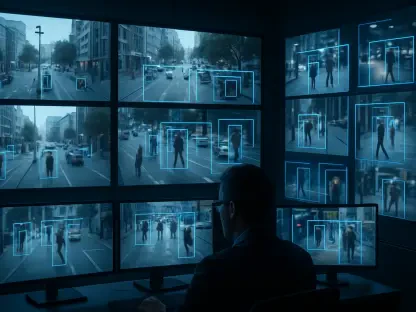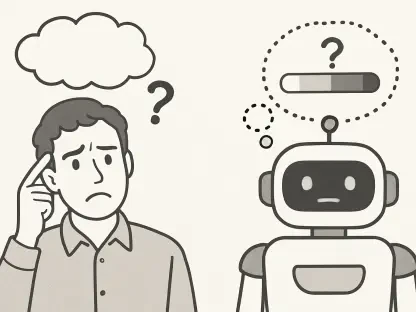In an era where technology shapes nearly every aspect of professional life, the legal field is grappling with the double-edged sword of artificial intelligence, particularly in high-profile cases like that of Bishop T.D. Jakes. Recently, a defamation lawsuit involving Jakes against Duane Youngblood brought to light a startling issue: the misuse of AI-generated content in legal proceedings. Youngblood’s attorney, Tyrone Blackburn, faced sanctions from a Dallas federal judge for submitting briefs riddled with fabricated case law and inaccurate citations, all crafted by generative AI tools. This incident not only resulted in a significant legal victory for Jakes but also exposed the potential pitfalls of relying on unverified technology in court. As AI continues to infiltrate various industries, this case serves as a stark reminder of the ethical and professional challenges that accompany its adoption in the judiciary, raising critical questions about accountability and integrity in legal practice.
The Legal Fallout from AI Misconduct
The core of the issue in the T.D. Jakes defamation case lies in the irresponsible use of AI by attorney Tyrone Blackburn, who submitted legal documents that failed to meet the standards of accuracy required by federal regulations. Under Rule 11, which mandates the integrity of court filings, the judge found Blackburn’s AI-generated briefs to be misleading, containing fictitious references and flawed legal arguments. Despite an apology and a claim of unfamiliarity with the technology, the court held firm, stressing that every lawyer bears the responsibility to verify the content of their submissions, regardless of the tools used. This ruling underscores a growing concern in legal circles about the reliability of AI outputs when used without proper oversight. The incident didn’t just tarnish Blackburn’s credibility; it highlighted a broader risk of technology undermining the judicial process if not handled with diligence and care, setting a cautionary tone for practitioners who might be tempted to cut corners with automated solutions.
Beyond the initial error, Blackburn’s repeated submission of flawed documents compounded the severity of the misconduct, drawing a sharp rebuke from the court. Even after the initial sanction, a subsequent brief contained similar inaccuracies, with the attorney attempting to shift blame onto opposing counsel rather than accepting full accountability. The judge’s response was unequivocal: a $5,000 fine was imposed, not as compensation to Jakes’ legal team—who had sought over $76,000 in fees—but as a deterrent to prevent future lapses. Additionally, Blackburn’s temporary permission to practice in the district was revoked, with any future court appearances requiring a reference to this sanction order. This penalty marks a rare but significant instance of a federal court addressing AI misuse head-on, signaling a zero-tolerance stance on unverified content in legal filings. The implications of this decision ripple beyond a single case, urging the legal community to prioritize accuracy over convenience when leveraging technological tools.
Broader Implications for Legal Ethics
The ramifications of AI misuse extend far beyond the specifics of the T.D. Jakes lawsuit, casting a spotlight on Tyrone Blackburn’s broader pattern of questionable legal practices. In another high-profile case, Blackburn represents Terrance Dixon in a $20 million lawsuit against rapper Fat Joe, where similar criticisms have emerged regarding the authenticity of submitted documents. Fat Joe’s attorney has accused Blackburn of filing “bogus” materials, pointing to a flagrant disregard for professional duties. This recurring issue suggests that the problem may not be isolated to a single error in judgment but could reflect a deeper systemic challenge in how some legal practitioners approach their responsibilities. As AI tools become more accessible, the temptation to rely on them without thorough review grows, potentially eroding trust in the legal system if such behavior goes unchecked. The judiciary’s firm stance in the Jakes case serves as a warning that ethical standards must remain paramount, even amidst technological advancements.
Moreover, the integration of AI in legal work raises critical questions about accountability and the evolving nature of professional ethics in the digital age. While these tools promise efficiency and can assist with drafting and research, their outputs are only as reliable as the data they draw from and the oversight provided by their users. Courts are increasingly vigilant about ensuring that technology does not compromise the integrity of proceedings, as evidenced by the sanctions imposed on Blackburn. This case illustrates the necessity for legal professionals to balance innovation with responsibility, ensuring that AI serves as a supplement rather than a substitute for rigorous human judgment. As more attorneys adopt these tools, the legal field must establish clearer guidelines and training to prevent misuse, safeguarding the credibility of the justice system against errors that could have far-reaching consequences for clients and the public’s trust in judicial outcomes.
A Precedent for Future Accountability
Reflecting on the outcomes of the T.D. Jakes defamation lawsuit, the court’s actions against Tyrone Blackburn marked a pivotal moment in addressing AI misuse within legal contexts. The sanctions, including the financial penalty and revocation of practice privileges, were not merely punitive but aimed at deterring similar misconduct across the profession. These measures emphasized that technological errors, especially those involving fabricated content, were unacceptable and carried significant professional repercussions. The ruling also affirmed Jakes’ position, clearing his name against baseless accusations while exposing the ethical lapses of opposing counsel. This case became a benchmark for how seriously the judiciary views the intersection of technology and legal integrity, setting a tone of accountability that resonates throughout the legal community.
Looking ahead, the lessons from this case pave the way for actionable steps to mitigate the risks associated with AI in legal practice. Courts and bar associations might consider implementing mandatory training on the ethical use of such tools, ensuring attorneys understand both their capabilities and limitations. Additionally, developing stricter verification protocols for AI-generated content could prevent future mishaps, while fostering a culture of transparency in how technology is applied in filings. The legal profession stands at a crossroads where embracing innovation must be matched by an unwavering commitment to ethical standards. By addressing these challenges proactively, the judiciary can maintain public confidence in the fairness and accuracy of legal proceedings, even as technology continues to evolve at a rapid pace.









